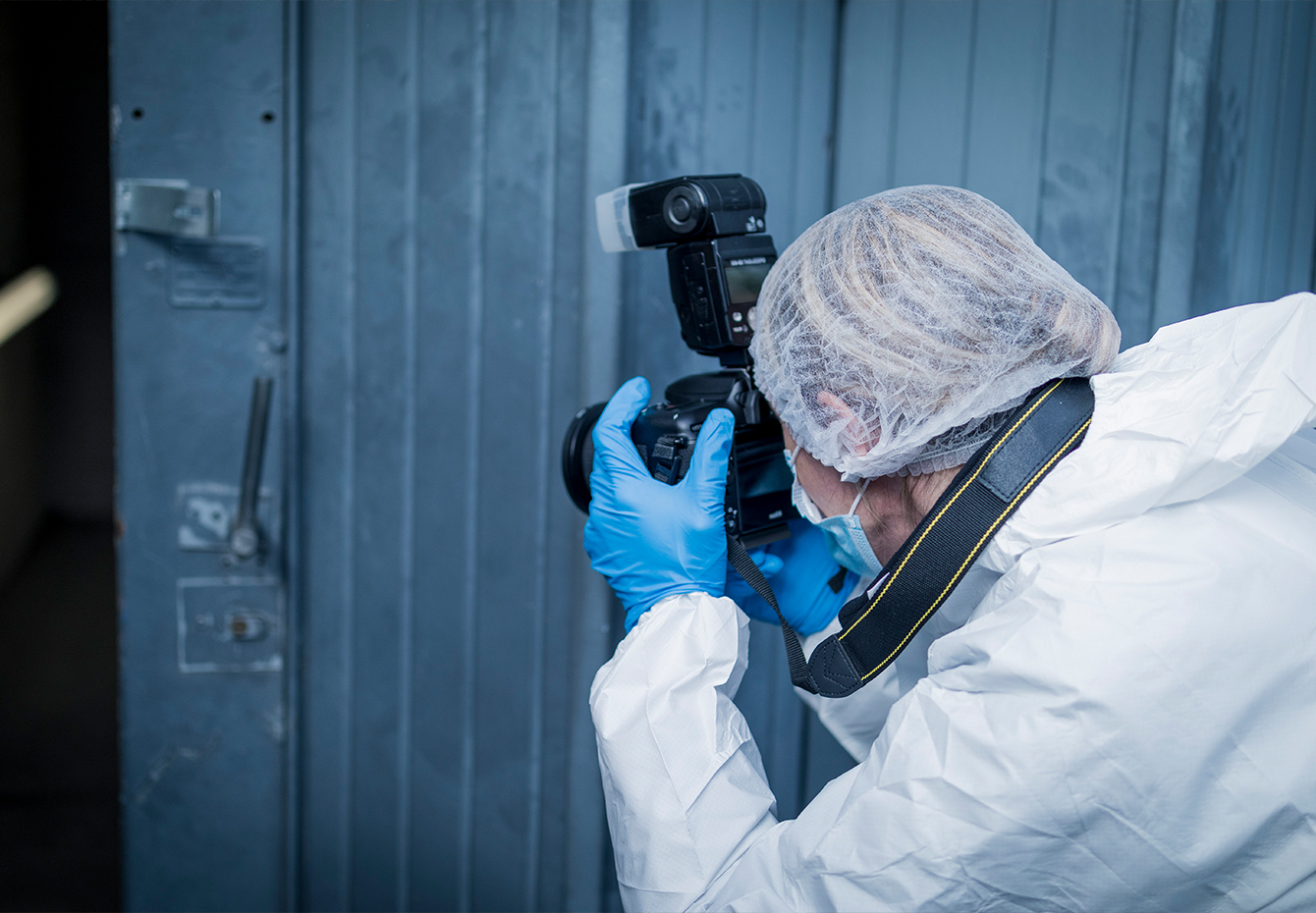In the whole 15 years I’ve been doing this, I’ve just wanted to help the victims, help my colleagues to be the best versions of themselves, and help the West Midlands Police to be a reputable force. And all those things come down to one thing: having a passion for justice.
Lou Chapman, forensic investigations manager for the West Midlands Police, didn’t always have such noble aims or seem destined for a high-profile role.
West Midlands born and bred, Lou was raised in Lichfield where she continues to live now. While she doesn’t recommend taking such a route, her journey from rebellious teenager to compassionate leader is quite the story.
Lou said: “I was a bit of a teenage rebel, a bit of a tearaway. I used to play truant a lot by jumping on the train to Sutton Coldfield and hanging out round the town centre, because it had cool shops and clothes. That, and Sutton Park.
“One day, a schoolfriend of mine who was really studious asked me to accompany her to a forensics open day at Sutton Coldfield College, because she knew that’s where I spent a lot of my time.”
Back then, Lou had no lofty ambitions and wanted to be a hairdresser. However, she gives credit to her mum and her French teacher, Mr Dawson, for encouraging her to aim for a role with greater responsibility. With Mr Dawson’s words at the back of her mind - “You’re far too academic for a job like that, so I suggest you have another think about it” - Lou was blown away by the forensics open day, which detailed how forensics is used in investigations and criminal justice. Lou came away from the event wanting to be a pathologist.
Shortly after, a poignant experience while on holiday cemented Lou’s determination to pursue a career where she could make a difference.
Lou said: “I went to Zakynthos, Greece, and tragically a body washed up on the beach. There was a crowd gathering and it looked like a lady had gone out for a swim and had a heart attack. Her husband was there and was absolutely distraught. It was terribly sad.
“At the same time, I wanted to know what had happened, to get to the bottom of it, and to try and help the husband. That’s kind-of what inspired everything.” And she set her sights firmly on crime scene investigation.
Lou’s journey led her to the University of Wolverhampton where she studied BSc (Hons) Forensic Science and Technology from 2005-08. Reflecting on her career she credits the university for igniting her passion and for opening the doors to her career with West Midlands Police.
“It’s a reputable university and despite my earlier attitude to learning and development, Wolverhampton shaped this career for me.”
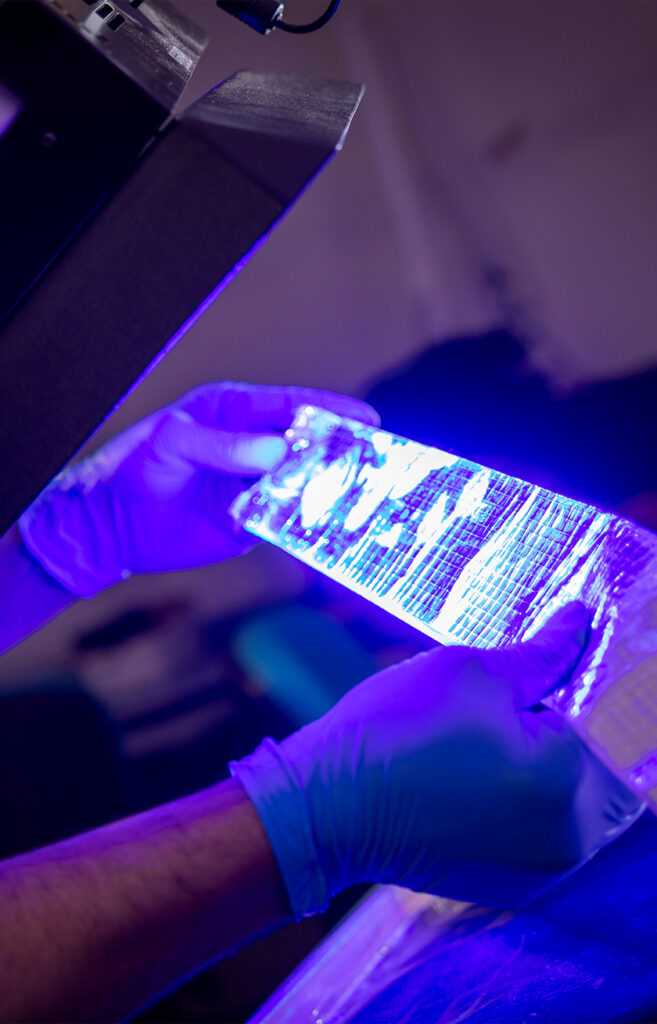
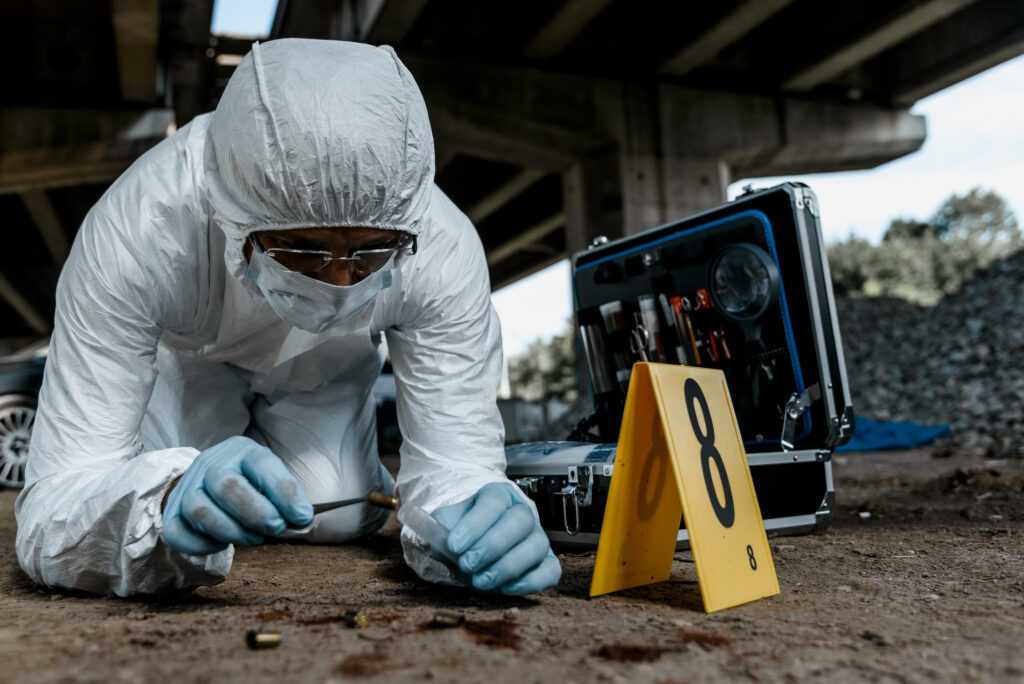
Now, overseeing several teams of forensic specialists, Lou ensures that her colleagues are trained to the highest standards, tackling everything from burglary to murder with professionalism and empathy.
She said: “Look where I am now: It’s incredibly humbling to have such a successful forensic background, I can hardly believe it’s real at times. I think the University of Wolverhampton is wonderful; it has great resources and excellent routes to full-time employment.”
Lou began as a forensic scene investigator and, over 15 years, worked her way up to her current role as a forensic investigations manager, where she is responsible for approximately 75 forensic specialists.
She now ensures that those forensic officers are trained and competent, and that if there are any barriers to service delivery, she drives additional resources to the right areas of the force.
The forensic teams deal with all manner of crimes, but Lou describes burglary on dwellings as being their “bread and butter.”
She said: “Burglary is a very personal crime. If somebody comes into your house and goes through your belongings, your safety and security are threatened and you feel vulnerable. You have to live with that and figure out a way to continue to stay in your house, which may now feel unsafe or unsecure.
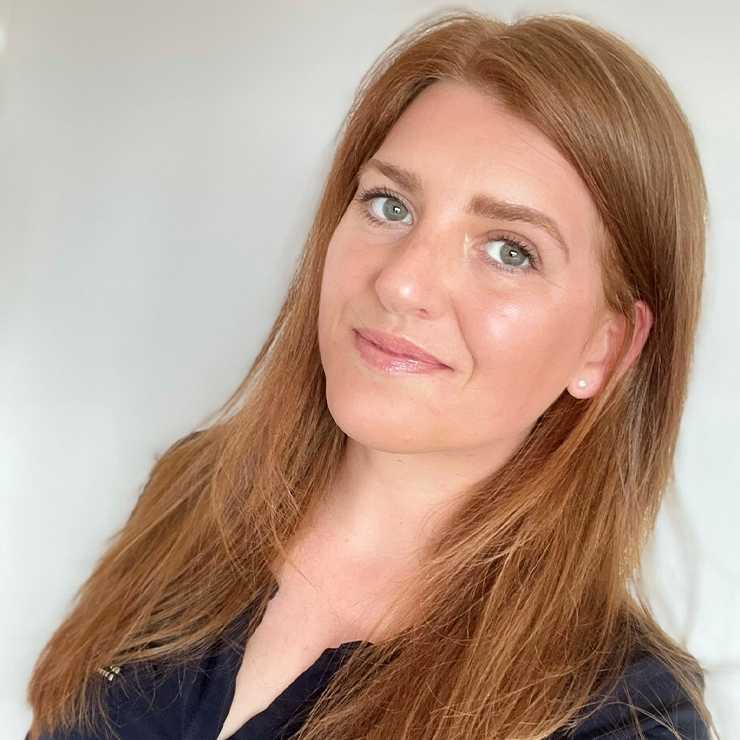
“As a forensic scene investigator, the biggest challenge is being able to switch off. You have to become almost robotic at some scenes. There’s often a victim in front of you who might be upset, and while you have to give them the support they need because you might be the only person they’ll see during the whole ordeal, you also need to ensure that those emotions don’t affect your examination.”
This multi-tasking might be of even greater importance at scenes of more serious crimes, such as those involving children, murder, or sexual assaults.
Lou added: “If I found myself in a situation like that, I wouldn’t want the person coming into that scene to be thinking about me and my life story and getting sad. I’d want them to come in and do the best job they possibly can.”
One way that Lou and her team ensure they offer the best service is through extensive continued professional development to stay at the forefront of industry best practice. The sciences of fingerprinting, blood, and DNA no longer develop as rapidly as they did in the 90s, 2000s, and 2010s, but Lou’s teams aim to improve on a week-by-week basis, taking training courses in the latest advances in associated areas such as archaeology, anthropology, and footwear evidence.
You become quite adept at putting away your personal feelings and giving the job what it needs.
While exciting TV series and crime fiction books give the public a glamorous image of forensic investigation work, the reality can be quite different from such tales.
Lou said: “It all takes so much longer: a burglary examination can take two hours, while the examination of a murder scene can take a week. I’ve known cases to take three weeks for just the scene work to be completed.
“You don’t always work in the nicest conditions either. Imagine you’ve got a scene, it’s outside, the middle of summer, and the heat is 40 degrees. You’ve got to be suited and booted in a mask, wearing double gloves, and constantly changing your PPE, your mask, and maybe even your suit. Equally, we work in the dead of winter in the middle of the night, which can be just as uncomfortable.”
Alongside the physical challenges of the role, crime scene investigators may have to compartmentalise their emotions, both on-scene and in their spare time. In Lou’s management position, she is responsible for helping ensure that her staff stay in positive mental health.
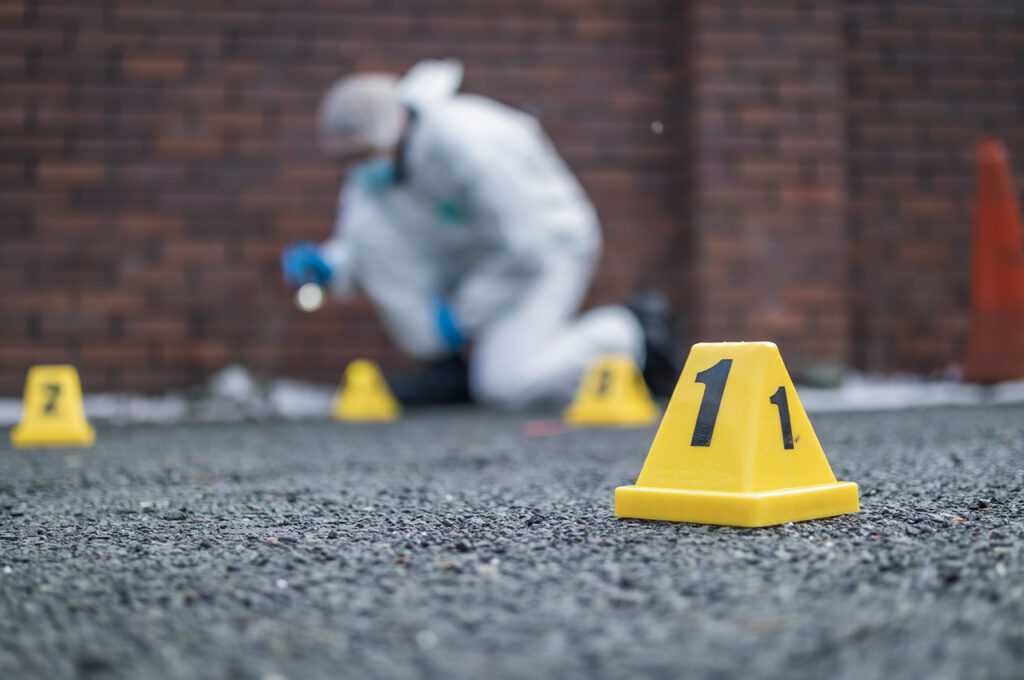
As well as ensuring that the department delivers a high-quality service, she must also support team members who might be struggling with a scene or a crime they have been tasked with, or coping with something tough in their personal lives. She said: “You become quite adept at putting away your personal feelings and giving the job what it needs, but sometimes people do that for 30 years or so, constantly pushing, and deciding which experiences and emotions can be put in a box and dealt with later.”
Lou herself knows how difficult this can be and has had to find ways to cope with the challenges of the job. At one point, she had to take five or six months away from work to overcome anxiety and depression, and spent time working out the things that make her sad, the things that make her happy, and how she can prevent herself from overthinking.
Explaining how she relaxes outside of work, she said: “Personally I find a lot of enjoyment in cooking. I like to keep fit, whether than be in the gym, climbing up a mountain, or re-charging with a walk along a beach. I also love watching football, I’m a big sports fan.
“Spending time with family is also important because this job gives you an appreciation of the people you have in your life. I think it reminds us that life is actually very short, and you just don’t know when your clock runs out. In a weird way, that helps me with being able to put things to rest at home. You’ve got to make the most of precious moments.”
Despite her younger, rebellious self balking at the idea of being dedicated to a role and helping others, Lou’s dedication to a difficult career and to helping people is highly admirable. As she humorously puts it, “If you’d asked 15-year-old me, ‘Where do you see yourself in 20 years?’ This certainly wouldn’t have been the answer.”
Yet Lou has no regrets. In fact, she wholeheartedly encourages anyone considering joining the University of Wolverhampton to take the leap.
